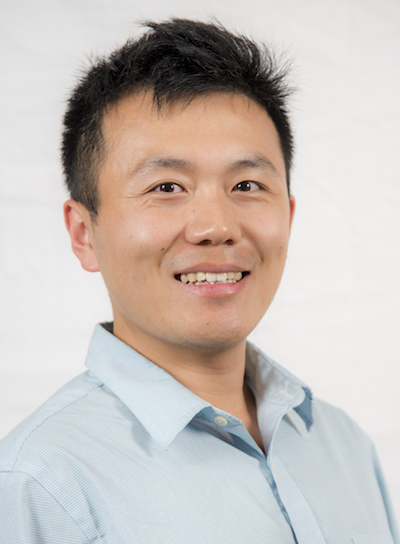Postdoc Profile: Ming Jin
Ming Jin received his PhD in EECS from Berkeley in 2017 and has been doing his postdoctoral research in IEOR since. He recently accepted the position of assistant professor at Virginia Tech’s Bradley Department of Electrical and Computer Engineering. In a conversation with the IEOR department, Ming shared his experiences at Berkeley and aspirations for the future.

Can you tell me a bit about your background? Where did you grow up? Where did you study before Berkeley?
I grew up in two cities in China; a small satellite city Dongying in Shandong province of China, which is famous for its petroleum production, and then I moved to Beijing. I went to the Hong Kong University of Science and Technology for my undergraduate studies before coming to Berkeley for my PhD in EECS. I started postdoctoral research with Prof. Javad Lavaei in IEOR in 2018.
How did you get interested in math and engineering?
I got into math and engineering by doing related projects from a young age. I remember that one of the early projects that I did back in primary school was to optimize the locations of sprinklers in a local park for water-efficient irrigation. I came up with a plan while learning about all the math involved along the way. This also intrigued me with the idea of using engineering principles to improve the world around us.
Can you tell us a bit about your research? What are you working on? How did you get interested in it?
The goal of my research is to enable trustworthy AI for safety-critical systems like power grids and human habitats. Working towards this goal, I develop fundamental theories in the areas of optimization, control, and learning. For instance, one of the most crucial problems in power systems is the so-called state estimation, which monitors the steady-state of the grid and informs the operator to take strategic actions in case of any contingencies. State estimation is challenging because the underlying physics is nonlinear, and we need to deal with a large amount of data, part of which can be completely wrong due to sensor malfunctions and even cyberattacks. We developed a method that can infer the state from abundant but untrusted data with formal guarantees of performance. Our technique also gave rise to the first vulnerability map of the entire US grid, which has implications for utility companies and regulators to enhance the infrastructure against cyberattacks.
For another example, many people nowadays are interested in applying reinforcement learning to safety-critical systems, but they don’t have a way to ensure the stability of such systems. We are able to come up with theoretical guarantees of stability for reinforcement learning. The method is generic enough to be applied in other domains beyond power systems.
I got interested in this topic because I want to bring the power of AI to solve societal problems. However, current methods lack performance guarantees and cannot be trusted to do critical work. To fulfill the power of AI, we need breakthroughs in the fundamental areas of optimization, control, and learning. And ultimately, this can lead to real-world deployment to improve efficiency, reliability, security, and sustainability of critical infrastructures in society.
Congratulations on your new position as an assistant professor at Virginia Tech! What most excites you about being a professor?
Thank you! I am very happy to launch my career at Virginia Tech. I am excited about this position because it is a unique opportunity to push my research agenda by forming a strong group of students and researchers, working on the unique cyber-physical testbeds, and establishing collaborations in both academia and industry.
How do you think your research interests might change over the next 5-10 years?
My research has been focused on the security aspect of data analytics up to now. As we move into a future with more autonomous agents making decisions for us, the need for explainability, adaptivity, and fairness is ever-increasing. So I will put more emphasis on solving these issues in the next 5-10 years.
What is the most exciting thing about the field of IEOR right now?
I think it is the synergy between real-world applications and optimization theory. Optimization has been a major workhorse behind many exciting advancements in different domains, from machine learning and perception to transportation and power grids. Meanwhile, these applications will uncover new challenges and push the development of optimization theory, such as nonconvex optimization and large-scale computation.
Do you have any advice for future Postdoctoral Scholars? How can they make the best use of their time?
I think it is crucial to spend time smartly, pick an important research problem, and work collaboratively. Since a typical span of postdoctoral research is one or two years, it is important to balance between leveraging your existing strength and acquiring new expertise. Also, it is important to find an important project and develop the depth of your research. When you get stuck on a problem, don’t forget to reach out to people in your group or other researchers. A good discussion can sometimes lead to unexpected solutions.
What will you miss at Berkeley?
I will miss both my PhD group and postdoc group, the faculties who I have collaborated with, and my friends who have always been supportive.
Is there anything else you’d like to share?
There are many gorgeous but secret trails around Berkeley. You can download an app called AllTrails to find a cool place to hike and relax when you need a break.
***
The IEOR department wishes Ming Jin the very best for his future!